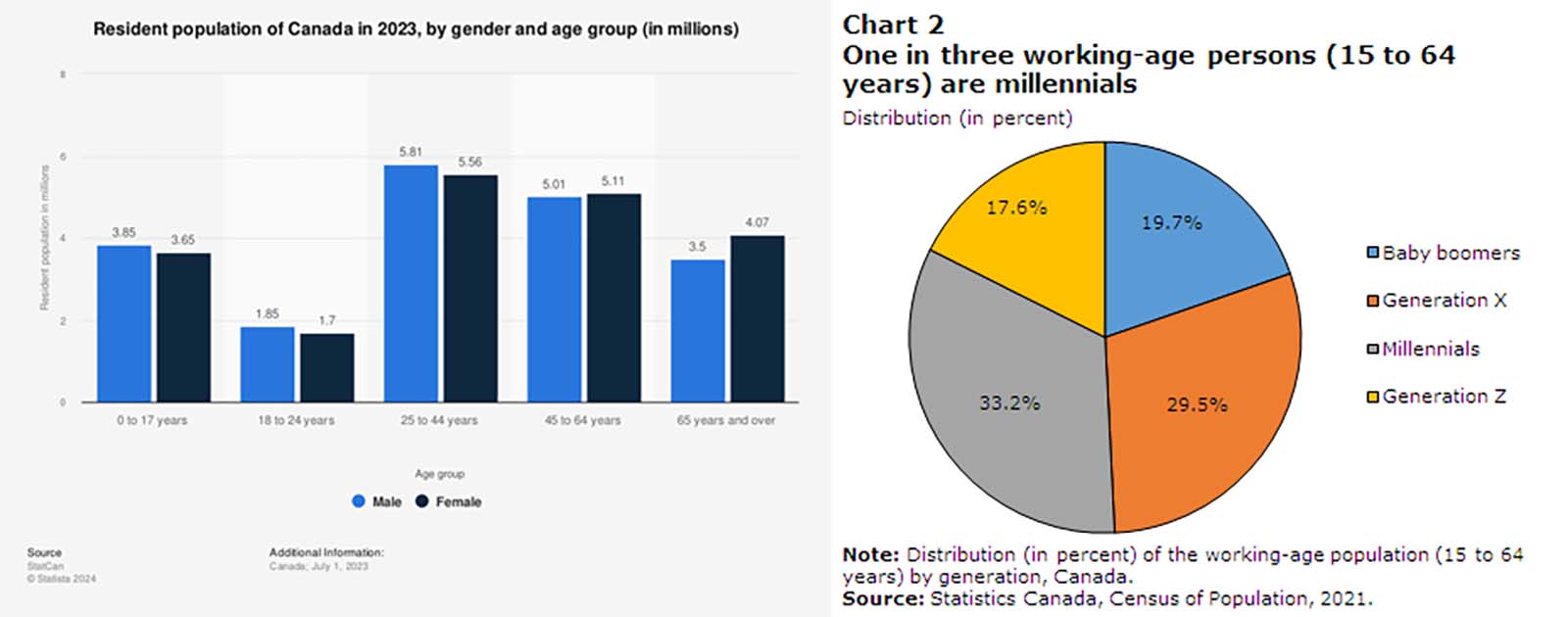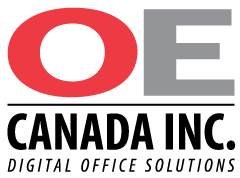The Generational Approach to Technology
March 5, 2024According to recent data from Statistics Canada, the Baby Boomer generation no longer constitutes the largest segment of Canada’s population. Since 1958, Baby Boomers have had a significant impact on societal and economic trends globally. From the mid-1960s to the early 1970s, they comprised 40% of Canada’s total population. However, data from 2023 reveals that Millennials have now taken the lead, surpassing their predecessors. Millennials also represent one in three working age individuals making the disparity even greater in the workforce. Notably, Generation X has never occupied the top demographic position and is currently outpaced by Generation Z.

This shift raises pivotal questions for businesses and the workforce at large. It is well-documented that Baby Boomers and Millennials approach work and technology differently. The expectations regarding the nature, timing, and location of work vary greatly across generations. As Millennials replace Baby Boomers exiting the workforce, organizations must adapt if they are to stay competitive. Some companies find it challenging to break away from the “this is how we’ve always done it” mindset. In the coming years, this will no longer be be a viable strategy and organizations will find themselves unable to attract or retain top talent if they are unable to evolve.
Over the next three weeks, we will launch a series of blogs that dive into these unique generational shifts and how your business can thrive amidst these changes. These posts will cover variances in technology adoption, work habits, and expectations. Furthermore, we will discuss strategies to attract and retain the brightest young talent. With this overview in mind, let’s explore the Generational Approach to Technology.
Adoption and Use of Technology
The primary distinction between Baby Boomers and Millennials in the workplace lies in their respective attitudes towards technology. While many Baby Boomers have embraced technology, there tends to be a lingering preference for conventional work methods over newer, tech-driven approaches. For them, practices such as paper files, in-person meetings, and dedicated physical office spaces are deemed essential for productivity and business success.
On the other hand, Millennials are often regarded as digital natives when considering the generational approach to technology. Having come of age in an era marked by rapid technological progress, these individuals possess a natural comfort with various tech platforms and swiftly adapt to new solutions. They are particularly receptive to tools that enhance productivity and enable remote work.
Communication Preferences
When it comes to professional communication, there are notable differences between Millennials and Baby Boomers. Millennials typically favor rapid communication methods like text messages and instant messaging on platforms such as Slack or Microsoft Teams. They also utilize email in a less formal manner, often incorporating emojis or informal language. The predominant trend among Millennials is towards efficiency and immediacy.
In contrast, Baby Boomers tend to prefer face-to-face meetings, phone calls, or formal emails. They place a higher value on personal interaction, which enables them to establish rapport, interpret body language, and convey nuances effectively. Additionally, Baby Boomers typically appreciate formalities in email communication, valuing professionalism and the structured nature of written correspondence.
Work-Life Balance and Flexibility
Millennials demonstrate a strong appreciation work-life balance. The ability to work remotely or with flexible hours is extremely important to this demographic. They embrace technology that facilitates this lifestyle including, document management systems, collaboration platforms, and virtual meeting spaces. In a post pandemic world, where remote and hybrid arrangements became commonplace, many millennials have resisted the push to return to the office, even going so far as to leave their current job if accommodations are not offered.
While there is certainly variation among individuals, Baby Boomers as a group tend to be more accustomed to a traditional Monday to Friday 9-5 work schedule. However, they are also tend to prioritize a firm separation between work and home life, with a reluctance to blur lines between the two. While remote work is increasingly adopted, it is not likely as inherently valued.
Learning and Development
When it comes to learning and development, Baby Boomers tend to prefer more traditional environments like workshops, conferences and in-person training sessions. While they may be receptive to technology-based options, they often prefer structured, formal settings that offer a social component do to the generational approach to technology.
Alternatively, Millennials actively seek out opportunities for ongoing learning development. They will take advantage of online courses, webinars and various digital resources. Options offering flexible schedules tend to be preferred and prioritized. This group is very comfortable learning new skills online and often pursue continuous improvement.
Collaboration and Teamwork
It’s not surprising that when it comes to teamwork and collaboration, millennials are very comfortable leveraging technology. The use of project management platforms, shared documents, and platforms that facilitate real-time editing and feed are commonplace. This group values the efficiency and flexibility that cloud based tools provides. They also expect to use their phone as a primary device.
While Baby Boomers accept digital tools, they typically prefer more traditional communication options. They often perceive in-person meetings and brainstorming sessions as more productive, and they place a higher value on on-site collaboration within this group.
Attitude Towards Change
Baby Boomers tend to be a little more reluctant when it comes to embracing new technology or change in the workplace. Generally, there is a preference to stick with the familiar unless there is an immediate or obvious benefit to new technology. They generally need to see new systems as offering substantial change before they’re willing to embrace them
Millennials, by comparison, are quick to adapt and embrace change, especially when it offers improvements to efficiency or work-life balance. This group is quick to adopt new technology and integrate into their workplace.
Conclusion
It is important to note that when looking at the generational approach to technology, every individual is different. The points above represent a broad generalization of the differences between these unique generations. The demographic shift underscores the urgency for businesses to adapt. Millennials are becoming the dominant generation in both population and the workforce. Organizations must recognize and address the differing work styles and technological preferences compared to Baby Boomers. The generational gap presents challenges and opportunities in technology, communication, work-life balance, learning, development, collaboration, and change. Companies must break away from outdated mindsets and embrace innovative strategies to remain competitive and attract top talent.
In our upcoming blogs, we will dive deeper into these unique generational shifts and offer actionable insights for businesses seeking to excel amidst these changes. By understanding and adapting to the preferences and behaviors of Millennials, organizations can position themselves for success in a rapidly evolving landscape. It’s imperative for businesses to recognize the importance of embracing change and leveraging technology to remain agile and competitive in the modern era.


